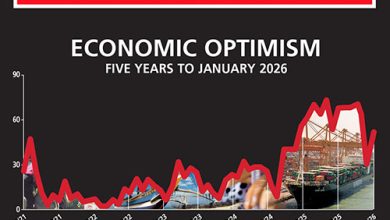BUSINESS SENTIMENT
All eyes were on Budget 2018 as the Minister of Finance outlined the government’s fiscal agenda for the coming year on 9 November. The budget was duly approved by parliament and has received a somewhat warm response from major economic stakeholders – although it may be too early to make a firm call on this given that the true test of effectiveness lies in its implementation.
THUMBS UP FOR BUDGET 2018!
Biz confidence rises in the face of the recent budget proposals
Commenting on the budget proposals, Fitch Ratings says: “Sri Lanka’s budget for 2018 sticks broadly to the targets for fiscal deficit reduction under its three year IMF programme, which began in June 2016. However, high government debt and the large cost of debt servicing weigh heavily on Sri Lanka’s credit profile, and will require sustained fiscal consolidation over the long term.”
Fitch goes on to explain that the “budget targets a fiscal deficit of 4.8 percent of GDP in 2018, which is only slightly above the 4.7 percent target agreed with the IMF and continues the consolidation that began in 2016.”
Meanwhile, S&P Global Ratings upgraded its outlook for Sri Lanka to ‘stable’ (from ‘negative’), citing its expectation “that the government will maintain the reform momentum over the next 12 months and smooth the upcoming surge in debt redemptions particularly in 2019.”
But S&P warns that “downward pressure on the rating could materialise if the political environment were to become more fractious, derailing the legislative programme especially its liability management reform.”
The latest LMD-Nielsen Business Confidence Index (BCI) survey, which was conducted hot on the heels of the budget presentation, presents a few revelations of its own – and its outlook is largely optimistic.
THE INDEX The BCI climbed up to 119 in November from 106 in the previous month, edging ahead of its 12 month average (117) but lagging behind the all-time mean of 130. And while it is still 25 basis points below where it stood at the same time last year, the 2017 budget aftermath saw the index reel by a massive 21 notches – to no one’s surprise, it must be said!
Nielsen’s Managing Director Sharang Pant attributes the recent uptick in biz confidence to Budget 2018, which he says “was welcomed across stakeholders as a document that aims to strengthen long-term measures as well as work out policies aimed at [a] short-term recovery.”
And he adds: “The ‘Blue-Green’ budget has announced initiatives that are favourable to agriculture related activities, SMEs, infrastructure, land ownership and tourism, while shoring up revenues in the form of a ‘green tax’ on telcos and motor vehicles.”
THE ECONOMY The outlook for the economy has also improved with 18 percent of respondents stating that ‘it will improve’ in the coming 12 months – this number remained at around one in 10 in the two months prior. Nevertheless, the majority (43%) of those polled expect economic conditions ‘to stay the same’ – and this count has remained stagnant for three months.
To this end, a businessperson reiterates that “the economy as a whole will see some improvement in the coming months” while another asserts: “We will need to observe… the budgetary impact – i.e. if there would be any benefit to the economy.”
BIZ PROSPECTS Views on business prospects witness a dramatic improvement with as many as one in three respondents foreseeing better times ahead both in the long and short terms, compared to 15 and 13 percent respectively in the previous month.
A survey respondent observes: “Our business can improve if the policies implemented are favourable; however at present, policies that would encourage local businesses to invest are not in place.”
INVESTMENT Sentiment regarding the investment climate also inched higher as almost one-in-five of the businesspeople spoken to by Nielsen call it in the positive range compared to a paltry seven percent in October.
But as one corporate executive cautions, “although there seems to be some investment taking place, not only are the constant policy changes of the government affecting ongoing investment projects but local as well as foreign businesses are reluctant to invest in the economy due to the high [level of] uncertainty.”
WORKFORCE More than a third (up from 8% in October) of those consulted by the pollsters point to an increase in their company’s workforce in the next six months; and six in 10 say they expect to maintain their employee numbers over this period while only three percent feel they’ll have to resort to staff cuts.
SENSITIVITIES Inflation, taxes and interest rates remain the major concerns for business, and any positive signals have yet to emanate on any of them thus far.
In the words of one corporate executive, “given the instability of the current political situation, many businesses seem to have lost confidence in the government. Currently, there are a lot of issues and the public also sees a lot of uncertainty… it’s a ‘wait and see’ situation.”
PROJECTIONS Last month’s BCI survey offered little cause for corporates to rejoice with apprehensions ahead of the budget presentation seemingly affecting their views and disruptive strike action also undermining confidence in business circles.
But the index bounced back in November albeit with lingering concerns over the broader economy. Governance issues also continue to hamper the corporate outlook, judging by the reactions of businesspeople in the latest BCI poll – and therefore, the upcoming local government polls will likely draw further attention.
If only the powers that be can get their act together, there’s no saying how high the index could climb in the months ahead… but it may be naive to get one’s hopes up just yet!
For the moment at least, the budget proposals seem to have done the trick.
– LMD








